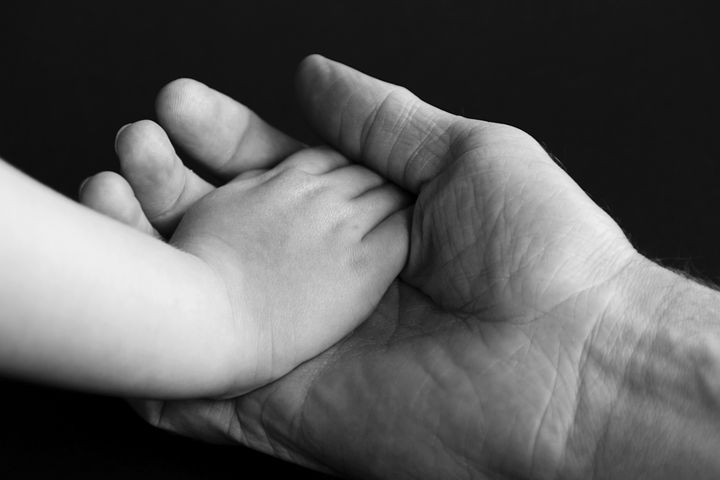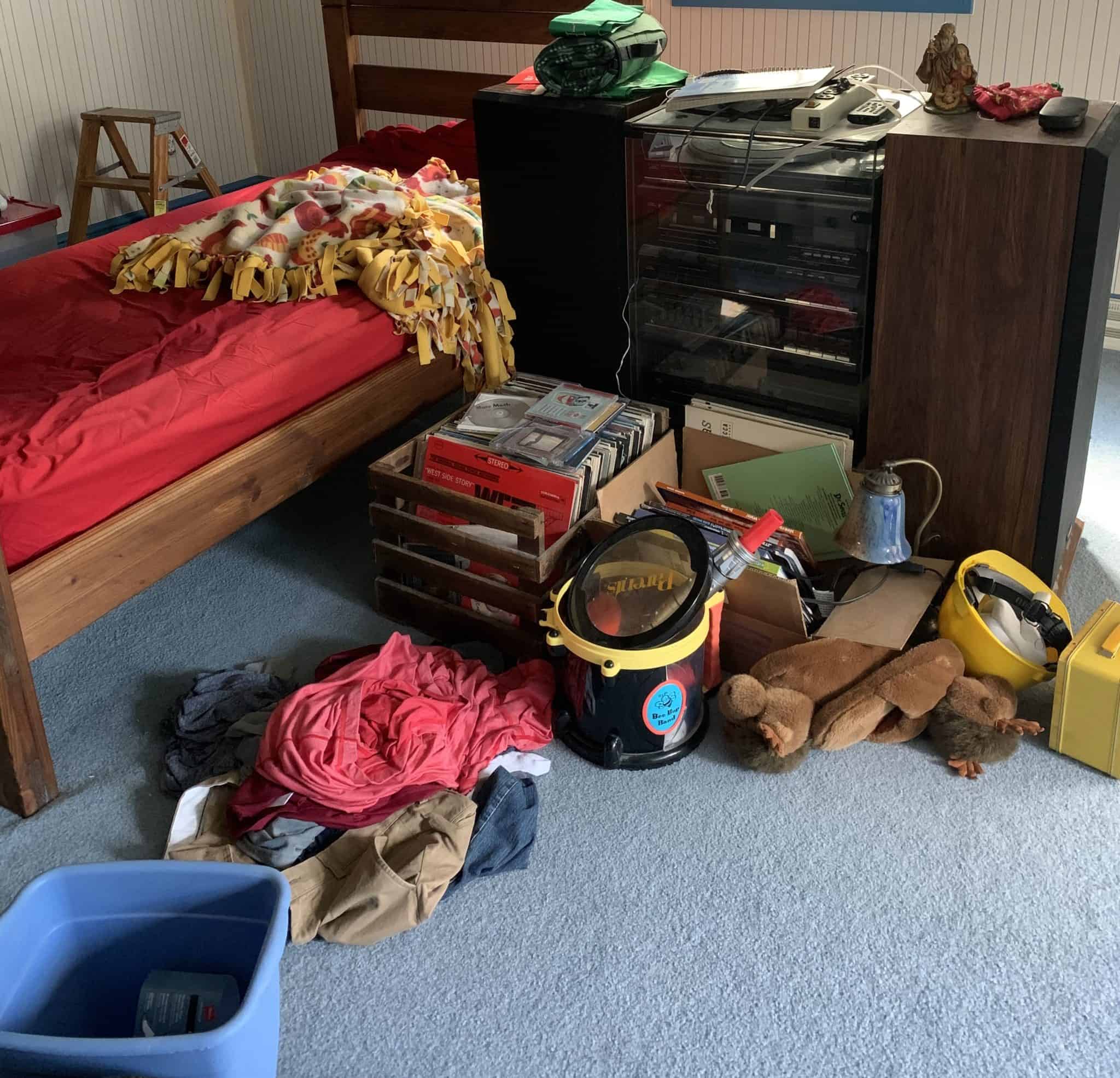Raising Kids Who Trust You:
Stop doing these things now, If you want to raise kids who trust you
Do you want to raise kids who trust you? Do you want your kids to come and talk to you when they are in their teen years? There are things that moms and dads do that cut off the lines of communication with their children. If you knew how to keep the relationship flowing, I am fairly certain that you would do it. However, all too often the little things we do are what count the most.
I love my children, and I am fairly confident my children love me. However, over the years I have talked with teens and young adults who view their parents as annoyances more than they view them as loving parents who have their best interests at heart. Most parents want the best for their children. So why if parents want the best for their children, are they viewed with such disdain? My answer is parents refusing to be parents! Many parents don’t realize that some of the things they are doing are viewed negatively by their children. Therefore, I have compiled a list of items you need to stop doing if you want to raise kids who trust you.
You see, sometimes we think we can treat our children like they are our friends. Sometimes we joke with our children, and sometimes our children irritate us. But guess what? How we respond can make a big difference with our children trusting us. Sometimes our responses and the way we act end up ultimately hurting our children and pushing them away. The behaviors and attitudes we have towards our kids when they are little will dictate how our children interact with us as they age.

We Learn to Parent From Our Parents
With all this in mind I have compiled a list of things we need to stop doing as parents if we want to raise children who trust and value our viewpoints all the days of their lives. I had a father who I could talk to even in my adult years.
Initially, I viewed him as being too busy to have the time to talk with me about some things. There was nothing he said or did to make me think that. I just inferred that because he had 2 businesses and 7 kids, he was busy. And he never said the words, “I am never too busy to talk.”
As I learned more about my dad, I realized I could always call him. When it came to buying a house, car or making a big business decision, I called my dad. In fact, I knew I could stop to visit him or call him anytime of the day, and he would talk with me. My father always acted like my father. I could always count on him to be the adult. I could always count on him to parent me. He never stopped being my Dad. When I was 40, my dad died, and I miss his advice every day. I find myself sometimes going to the phone to call him just to hear his voice.
Remember, There are No Perfect Parents
My dad was not perfect and did many things wrong, but he loved us. There are things my siblings and I still laugh about even to this day. My dad would yell at us if we called our mother, “She.” We needed to call her Mom. But in reality, he was yelling at us over our tone and lack of respect for her.
And there were things he said to his sons, that he never said to his daughters. We learn to parent from our parents. Obviously, no parent is perfect, and through his imperfect parenting, I learned things not to do, as well as things to do with my own children. I suspect that my children will adjust things based on how I parented them. So in my 31 years of parenting, I have learned a lot about children. I am sharing will with you the things you need to stop doing as a parent if you want your children to trust you.

List of Things We Need to Stop Doing Now to Raise Kids Who Will Trust Us
STOP LYING TO THEM
Before you say that you don’t lie to your children, stop and think for a moment. When your son comes up to you at age 5 and asks about Santa Claus, do you tell him the truth? Or do you lie because “he isn’t ready for the truth?” I recently had a conversation with an adult in his 30’s. He is adamant about not even doing Santa Claus with his kids. He didn’t find out the truth about Santa until age 11 or so. In fact, he had asked about Santa when he was younger, and his parents lied. Since he felt betrayed when he found out the truth, he felt like he couldn’t trust his parents with anything.
Parents worry about “keeping the magic alive” when their kids are little, but children can’t discern between half-truths, good lies and bad lies. When they believe that you have not been completely truthful with them, communication will go out the window. Your child will not come to you and say, “Remember when you told me Santa or The Tooth Fairy was real?” They will just form an opinion and live with that the rest of their lives.
Additionally, not being truthful about where you are going, who you are going with, and what you are doing, will immediately brand you not trustworthy. And just as you have ways of finding out the truth, so do your kids.
STOP TRYING TO BE THEIR FRIEND
By always being the parent, you send a clear message to your kids. You will love them, all the days of their lives. You, unlike friends, do not love them based on their performance, their grades, their career, the choices they make, etc. When you show your child love just because they are your child, you teach them a valuable lesson. There is nothing that will ever stop your love for them. You will teach them about unconditional love simply by loving them. If your child knows that you will always love them, and will always be there for them, they will trust you unconditionally.
This may mean that you hold your words when you really want to scream, STOP! Do not lie about how you feel, but do not think you have to figure out everything for them yourself.
For instance, many times when teens begin dating, you may absolutely hate the person they bring home. By telling your child you hate the person they are sure they love, you will push them away and right into the arms of that person. Stop being their friend and be their parent.
STOP SHAMING THEM
If you want to raise kids who will trust you, you need to stop shaming them. Telling your friends and family about your child’s failures is sure to make them feel worse about themselves. My son, Marcus, is 16. He has been preparing to take his driver’s permit test for over a year. Every time I would talk about taking the test, he would tell me that he knew he was going to fail. I would see him studying the booklet, but he acted like he was not going to pass. I thought maybe the rules were just too confusing. Relatives and friends kept asking him if he was driving yet, and I know this was an area that bothered him.
Some parents use shame to get their children to take action. Comparing your child with another child is a form of shaming. Telling them, “Tommy got his license last week,” is designed to make them feel bad about their lack of accomplishment. These tactics do not work. They create division and drive your child further from you. Your entire goal is to create a relationship with your child. One that will enable them to come to you when things in life are good or bad.
Through the years I have watched parents shame their children in regards to sports, theater, weight, work, appearance, and grades. This does not work. Stop using shame to get your child to comply with how you think they should look, act and feel.
STOP POSTING NEGATIVE THINGS ON SOCIAL MEDIA
I absolutely am horrified at the number of “good, loving” parents who post photos or videos of the following things:
- Your child’s bedroom – I understand that your child’s bedroom is a mess. You are trying to get him/her to clean it up. Posting photos or a video on social media showing the disaster does not build a bond with your child. (The following photo is posted with my child’s permission. The room is actually in the process of being remodeled).
 Get to the heart of the problem. Figure out why their room is a mess. Is she overwhelmed with the amount of school work? Maybe she is depressed? Is the clutter an extension of how he is feeling inside? Or has he never learned the organizational skills to keep the room looking satisfactory?
Get to the heart of the problem. Figure out why their room is a mess. Is she overwhelmed with the amount of school work? Maybe she is depressed? Is the clutter an extension of how he is feeling inside? Or has he never learned the organizational skills to keep the room looking satisfactory? - Your child’s wardrobe – Did you buy your child those clothes that you are now upset about? What is the problem you are having with being the adult? If your child is wearing clothes that you are buying, you are the problem. If they are buying their own clothes, you are still the problem. You have every right to tell your children that they need to comply by your rules. If your child is living in your house, you absolutely have the right to spell out rules. But first, you need to question, if your rules have the right motives. They absolutely have to comply with the dress code at school or a sports function, but that doesn’t mean they can’t express their individuality the rest of the time.
- Their attitude – Teens can be moody. Adults are also moody. NO ONE IN THE HISTORY OF BEING MOODY HAS EVER CHANGED THEIR MOOD BY HEARING, “QUIT BEING MOODY.” If you notice your teen is moody, and they won’t talk with you, chances are really good that there is something in the past that happened that caused them to not trust you. Furthermore, chances are really good that it was an overall pattern of responses by you that have pushed them away. I will delve into repairing the relationship below. Be aware that sometimes teens need time to sort out their feelings. They may not really understand why they are feeling the way they do. A question that they can answer yes, no, or I don’t know can be changed to a question that needs to be answered in more detail. Instead of “Did anything happen at school today?,” you can ask, “Tell me one good/bad thing that happened at school.”
THINK ABOUT HOW THEY MIGHT FEEL IN 10-12 YEARS FROM NOW
Your adorable child is nursing in your arms, and you are snapping photos. It is easy to post that photo on social media, but imagine when they are 13 years old and their schoolmates finds that photo online. Will your child think that photo is adorable? Will your child want it sent all through the school?

Empathy is the ability to understand and sympathize with the feelings of others. You need to cultivate empathy for your children in the future. What you do and say online today will impact them in 10 years. Be careful what you post. Think first before sharing every thought and feeling that may negatively impact them during the years that they are so vulnerable.
Even my teenage children had a hard time with me sharing information online about when they were younger. I told a cute story about one of my children, and I never realized how it impacted them because I just viewed it as a cute story. When our pre-teens and teens are going through difficult times, that cute story you share may be one more thing that makes them feel self-conscious in a world that already says that teens are awkward.
Our teens have to see perfectly curated Instagram feeds from their flawless friends (or at least that is how they view it). They are bombarded with messages of perfection everywhere they turn. When they feel their lives are messy and non-perfect, sharing a story may make them feel inadequate.
ATTEND TO THEIR NEEDS FIRST
It is shocking to me that I even have to say this, but your first response to a problem should not be to pick up your phone and take a photo. If your child is walking on train tracks, you should get them off the train tracks. Likewise, if your child is having a difficult time (meltdown, crying, tantrum), your first thought should be to attend to their needs. If you first thought is taking a photo, you may need to reassess what is important.

When your child is a toddler or preschooler, and creates a mess or gets into a difficult situation, do not take a photo first. By taking the photo you are sending the message to your child that the photo op is more important than the problem. If you want to raise healthy teens that come to you when there is a problem, attend to their needs first. Put their needs above your own, and they will learn that their problems are important.
Small problems when they are little seem huge to them. We may think the issues they face when they are little are insignificant, but those issues seem like mountains to them. By being there to deal with the tiny things when they are little, they will learn a level of trust and have a bond with you that enables them to bring the bigger teen issues to you when they are older.

ALLOW THEM TO EXPRESS THEIR EMOTIONS AND HAVE THEM SEE YOU EXPRESS EMOTIONS
Home should be a safe place. Sometimes we don’t understand how we make it unsafe for our children. When one of our kids cries, and their sibling makes fun of them, this is called bullying. We don’t usually call it that when it happens in our household, but it still has the same negative effect.
How many times do parents say to sons, “Boys shouldn’t cry,” or “Quit acting like a girl?” These are bad messages to send to both our sons and daughters. If your son has grown up hearing this and he is going through something emotional, he will not come and talk with you because he might cry. Additionally, if your daughter has heard you say this, she may think it is okay to be overly dramatic and emotional about everything and become the worlds biggest Drama Queen!

If your children believe that you never cry because you only do it privately, and if they believe that you and your spouse never fight for the same reason, you are not teaching them anything about emotions. Children need to see adults in our true states, joyful, happy, elated, upset, angry, disappointed, exhausted, and broken.
It is only in seeing adults deal with emotions that children will learn that powerful feelings are normal, but that even in those feelings, we go on and function while feeling those things. And most importantly, feelings change over time, and you can both be sad and joyful on the same day. I can be sad that a relative died, but I can also feel happiness that my son did well on the SAT all on the same day.
STOP BUYING STUPID GAG GIFTS AND PULLING PRANKS ON YOUR KIDS
Imagine Susie opening a gift that you have so carefully wrapped. Her eyes are wide with wonder, and the excitement shows on her face. As she carefully opens the box, a spring snake pops out and frightens Susie. Everyone laughs, and you say to your child, “It’s just a joke.” However, it is not just a joke to your child.
My heart aches for the child above. In fact, this is one of my pet peeves. I watch parents buy gifts to give their children that they know their children will hate or is funny at the child’s expense. Or they pull elaborate pranks on their children to get a reaction. This behavior is dangerous to any relationship. Additionally, throwing cheese at your child’s face makes your child lose trust in me.
How Would Jesus Treat Me?
As a follower of Christ, I try to lead my life in a manner that Jesus would have done. I cannot imagine Jesus pulling pranks on anyone he was mentoring. We are our children’s first and most important teachers. Our children will form the basis for every other relationship based on the level of trust they have with us, their parents. If you are serious about raising kids who trust you, you will take the job seriously and be the parent at all times.
If you treat your children like nothing more than someone to tease, taunt, and poke fun at, they will never trust you. Your relationship should always be top priority, and that relationship should be built on trust.
When you “prank” your child, you are in essence lying. Children do not distinguish between little white lies and big lies. A lie is a lie to them. When you lie to them about a gift or pull a prank, it is a lie. Once you have lost your child’s trust, it will be difficult to get back.

WHAT IF YOU HAVE ALREADY FRACTURED THAT RELATIONSHIP BETWEEN YOU AND YOUR CHILD
Setting Boundaries:
It is never too late to start to work on a loving relationship. I am not, nor will I ever be, a perfect parent. However, I believe my children know that I love them, and have always had their best interest at heart. But there have definitely been times that the relationship between one of my children and me was strained. However, there are things that you can do to improve that relationship.
[amazon_link asins=’1942306067,0768427398,0310353777′ template=’ProductCarousel’ store=’amotsrantho-20′ marketplace=’US’ link_id=’e425bb62-5313-4fec-b1d1-ade9e317b05d’]
One of my favorite books (and authors) is Danny Silk’s Keep Your Love On. He explains how to consistently show love to those around you. If you have a fractured relationship, there are steps you can take to repair and strengthen the bonds of that relationship. Additionally, Silk has a book geared for relationships with children.

Be the Parent as You Raise Kids Who Trust You:
Another important way to heal a relationship with your child is to begin to act like the parent. If you have been treating your minor children like they are your friend, and not being the parent, you can reverse that today. Setting boundaries and enforcing them for your child is paramount to raising successful children.
In the event that you find you are unsure of how to be the parent, find a parenting class at a local church, or select some of the resources below to help you learn how to parent.
[amazon_link asins=’0981540007,0966378601,1433551934,141439134X,B00ETGLPHI’ template=’ProductCarousel’ store=’amotsrantho-20′ marketplace=’US’ link_id=’2f384704-f0ae-4804-be09-aceef066a46b’]
Create Rules for Your Household:
Maybe you have never given your children rules or a curfew. If you are unsure of what are appropriate rules for your child’s age, there are plenty of resources that talk about chores your child should be doing at various ages. You can also find Rule Charts or if your children are pre-teens or teens, you can enlist their help to come up with rules of the household.
Beginning rules can be simple such as: a) You will not dress like a tramp, b) We will put down the phone at dinner, c) You will do household chores. Additionally, having boundaries is something your children crave. When they go out into the world, it seems like such an unsafe place with the rules changing daily, but when you set up rules in your household, you create a safe, consistent place where your child knows they are loved, cared for, and exactly what to expect there.

Work on the Relationship:
Maintaining relationships with your children is not easy. Indeed, it is often filled with pain and sorrow. I would be lying if I said I never had a moment where I looked at my kids and thought, “Was having children really worth it?” Furthermore, it has always been difficult to raise children. Just ask Adam and Eve how things went with Cain and Abel.
Most importantly, may we raise kids who trust us. I pray that God gives you the grace, patience, and love necessary to raise the humans to be loving, compassionate and caring adults. May we raise up a generation of children who change the world. In this motherhood journey, we will face many trials, but may we always remember to love deeply, care too much, and give our heart fully to the one who created us.
In doing so, our children will see Jesus in us, and know that although we are flawed, we truly shine a light that guides them into a relationship with Him.
Sprinkling Joy Life Confetti,
Patty

Reviewing movies for parents from a Christian perspective since 2005. Know Before You Go!
Christian Homeschooling mom – 30 years and counting
Autism Mom & Disney enthusiast





